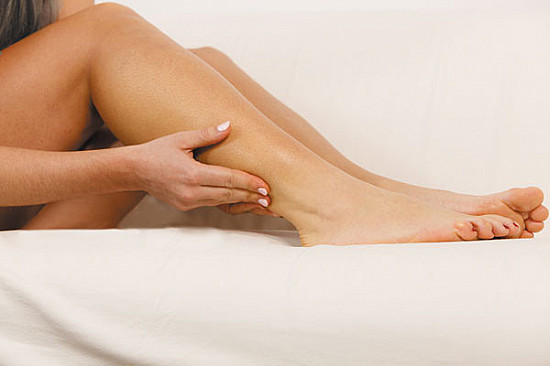What causes severe leg cramps at night? There are many causes. In this article, we’ll discuss the symptoms, possible complications, and exercises. You’ll also learn if pregnancy can cause leg cramps. And, of course, if you’re pregnant, the condition is more common during pregnancy. In the meantime, you can try the exercises listed below to alleviate your symptoms.
Symptoms
Despite their common name, nocturnal leg cramps can be extremely painful. They are so severe that they can even paralyze a leg. Over 60% of adults suffer from these cramps at some point in their lives. These symptoms are also commonly known as muscle spasms or charley horses and occur when the muscles in the leg tighten involuntarily, causing pain. Listed below are the most common causes of nocturnal leg cramps, including causes, treatments, and lifestyle modifications.
A doctor may prescribe a diuretic to relieve cramping. Diuretics are medications that impact electrolyte levels, so they can cause leg cramps. Studies have found that diuretics may cause leg cramps, but the frequency is unknown, and supporting evidence is limited. Other medications may help alleviate the symptoms. For more information about which medications work best for your condition, speak with your healthcare provider.
Besides avoiding alcohol and caffeine, staying hydrated is another important step to combating cramps at night. While a medical professional cannot promise the cure, many people find that sleeping on their sides or sleeping with their feet propped up on pillows can help ease the discomfort. Aside from these, it’s a good idea to stretch your muscles before bed, especially after a strenuous activity. A loose blanket also keeps your toes in an upward position.
Complications
If you’re experiencing severe leg cramps at night, you are not alone. About 60 percent of adults experience nocturnal leg cramps at some point in their life. These pains, also known as muscle spasms or charley horses, occur when the muscles in your leg suddenly contract involuntarily. Often, it’s easy to diagnose the cause of nocturnal leg cramps by the patient’s description.
If leg cramps are recurring or are associated with other symptoms, see your doctor. They can occur because of dehydration, electrolyte imbalances, or medications. However, most leg cramps are caused by a lack of adequate blood flow or by an electrolyte imbalance. Symptoms of an electrolyte imbalance can include decreased urine output, abnormal heart rhythm, or seizures.
Although the causes of nocturnal leg cramps are unknown, a recent study reveals an increased risk among older women. People over 45 years of age are more likely to experience this condition, whereas those aged between 18 and 35 are less likely to experience it. A fully-adjusted model also revealed gender and race/ethnic differences. Whites and non-college graduates reported significantly lower rates of nocturnal leg cramps than Hispanic/Latinos. The likelihood of experiencing severe leg cramps at night was associated with a higher BMI, being unemployed, and not having a full night’s sleep.
Exercises
In an attempt to alleviate the pain and discomfort associated with severe leg cramps at night, many people are turning to stretching exercises before bed. These simple exercises can help calm overactive nerves and lengthen shortened muscles. One study of 80 adults found that these exercises were effective for reducing nighttime leg cramps. Listed below are 3 bedtime stretches:
First, you should try to identify the underlying medical condition, as sometimes the symptoms are indicative of another health issue. If your symptoms are a result of muscle cramps, a physician may recommend a course of treatment to address the problem. Medications are an option, but they are not always effective and can have side effects. If you notice any of these symptoms, be sure to stretch your muscles and drink plenty of water. Sports drinks are an excellent way to replace electrolytes lost through sweat.
Another cause of nocturnal leg cramps is exercise. A prolonged standing position can shorten the calf muscles, leading to nocturnal leg cramps. A lack of sleep can also result in abnormal activity in the muscles and cause cramping. In addition to exercising, drinking alcohol can cause muscle cramps, which may be mistaken for nocturnal leg cramps. Fortunately, stretching exercises can alleviate the pain and discomfort of both types of leg cramps.
Pregnancy
You are not alone if you are suffering from pregnancy-related leg cramps. You might be asking yourself “why is my leg cramping so badly at night?” Well, a combination of increased blood volume and slow circulation are the main causes. But there are ways to help ease your cramps and rest easier at night. Try lying with your legs elevated on a pillow. Or you can take a magnesium supplement to help relax your muscles.
If you experience severe leg cramps at night, it’s important to see a doctor. Pregnancy can make blood clots more likely. If your legs cramp while you’re asleep, it’s a warning sign of a serious condition called deep vein thrombosis. If the blood clot breaks and travels to your lungs, you’re at risk for a life-threatening clot.
While leg cramps are normal during pregnancy, they’re especially common during the second and third trimesters. While they’re usually short-lived, they can interfere with your sleep, preventing you from getting a good night’s sleep. Drink plenty of water, eat a balanced diet, and stretch your legs regularly. If the cramps persist, visit your practitioner immediately. If your cramps are persistent or recurring, they could indicate a blood clot or deep vein thrombosis, which is dangerous and requires immediate medical attention.
Proper footwear
Many people suffer from leg cramps at night, and they can be quite a nuisance. The sensation is similar to someone grabbing the end of a muscle. They usually affect the calves, but can also occur in the thighs or feet. If you suffer from these leg cramps, there are several ways you can alleviate their discomfort. Listed below are some common solutions. You should also be careful to wear comfortable footwear that does not rub the skin too much.
A variety of reasons may be the cause of your cramps, including flat feet or structural problems. These problems can be addressed with proper footwear, but there are also many other causes. Inflammation can also lead to leg cramps, and it is one of the leading causes of cardiovascular disease, type 2 diabetes, and cancer. To combat inflammation, you should drink plenty of water and drink plenty of fluids before bedtime. A foot doctor can prescribe magnesium supplements for cramping that keeps you up at night.
If you have regular leg cramps, you should avoid wearing uncomfortable shoes or flip flops at night. This is due to improper support for the feet. Improper footwear puts too much pressure on the leg muscles and nerves, which leads to severe leg cramps at night. Fortunately, nocturnal leg cramps are not life threatening. A few steps will alleviate cramps and keep them from returning.
Medical conditions
A majority of adults experience nocturnal leg cramps. These cramps are extremely painful and can paralyze the affected leg. They are caused by muscle spasms, which are a symptom of several conditions. In addition to muscle spasms, nocturnal leg cramps are sometimes associated with obesity, poor diet, and a lack of rest. These problems can affect anyone and are not uncommon.
Regardless of the cause of the pain, it is important to seek medical attention immediately. While leg cramps are often a symptom of a more serious condition, they can also be a warning sign for more serious health conditions. It is always best to consult with a medical professional if you are experiencing a recurring episode of leg cramps. For this purpose, you must first identify the symptoms. Your doctor will assess your symptoms and perform a physical exam to find the cause of the cramps. If the doctor suspects a hidden problem, blood tests may be ordered.
Treatment options for nocturnal leg cramps can include medications like diphenhydramine, amoxicillin, or celecoxib. For those who are experiencing a more permanent cure, prescription medications like nifedipine are available. Other nonprescription leg cramp remedies are available, including homeopathic products. Patients should also check with their primary health care provider before starting any medication. The risks associated with these medicines are not considered worth the potential benefits.
Other possible causes
Severe leg cramps can be very painful and hard to touch, and they can sometimes paralyze a leg. Up to 60 percent of adults suffer from nocturnal leg cramps, which are also called muscle spasms or charley horses. This condition is caused by the tightening of muscles in the leg. Fortunately, there are treatments available for severe leg cramps, and many of them will help alleviate the pain and discomfort.
Stretching can relieve leg cramps. Avoid sleeping face down, as this position can shorten the calf muscles and cause the toe to point away from you while you’re sleeping. Small foot movements can trigger leg cramps. To keep the toes in the neutral position, sleep on your side or with your feet off the bed. A well-balanced diet is also important, so eat a well-balanced meal before bed.
Medications and lifestyle factors are also causes of leg cramps at night. Although most of these conditions can be controlled through lifestyle changes and gentle stretching, there are other possible causes of severe leg cramps at night. If the symptoms are chronic and difficult to treat, medical care may be necessary. If your leg cramps at night are due to another condition, it is important to see a healthcare provider for proper diagnosis and treatment.













